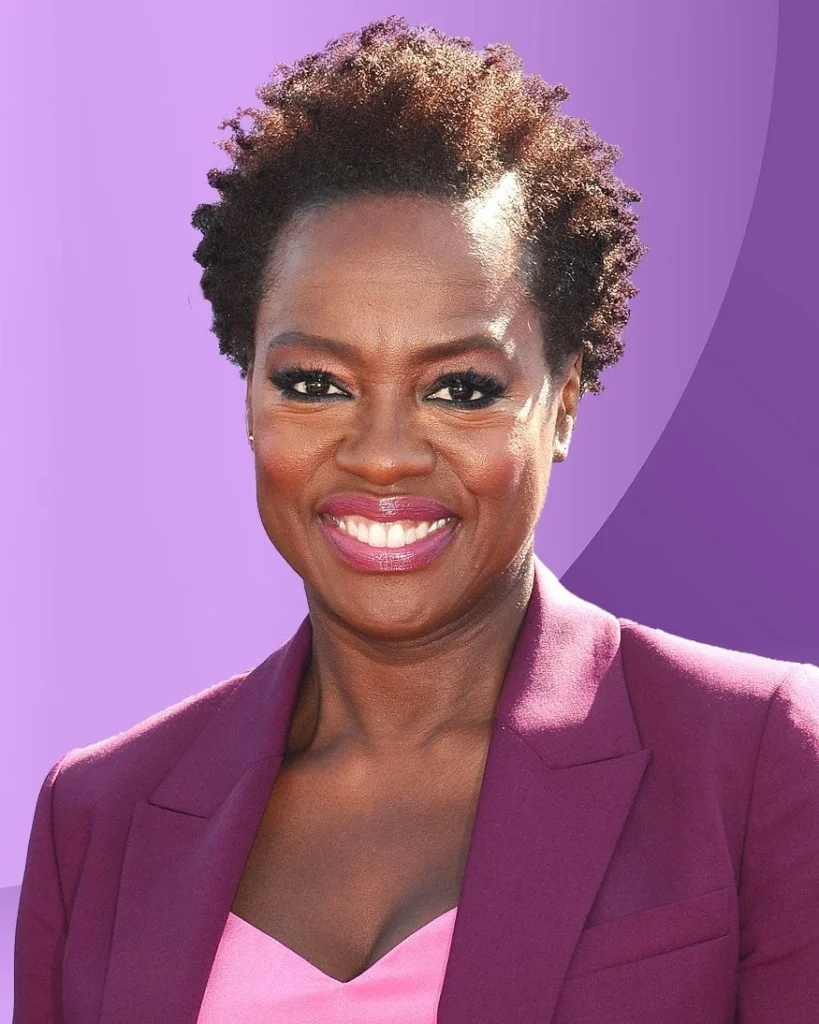
A Journey of Power, Perseverance, and Purpose
Viola Davis is not just an acclaimed actress — she is a symbol of strength, resilience, and unshakable purpose. From growing up in poverty to becoming the first African American to achieve the rare EGOT status (winning an Emmy, Grammy, Oscar, and Tony), her journey is one of the most inspiring in Hollywood history. Her story is a powerful reminder that success is not just about talent, but about courage, endurance, and the will to rise above adversity.
Early Life and Struggles
Viola Davis was born on August 11, 1965, in St. Matthews, South Carolina, and raised in Central Falls, Rhode Island. She was born into poverty — her family lived in a rat-infested apartment, often lacking basic necessities. Viola has openly spoken about her difficult childhood, including the emotional and psychological toll of growing up in extreme poverty.
Her father was a horse trainer, and her mother was a maid and factory worker. Viola was one of six children. Despite the difficult circumstances, her mother always pushed her children to pursue education and opportunities. Viola found her escape and empowerment through acting and storytelling, which allowed her to express her inner voice and break free from her environment.
Education and Artistic Foundation
Viola’s talent was recognized early on, and she earned a spot at Rhode Island College, where she majored in theater. She then continued her training at the prestigious Juilliard School in New York City, one of the most elite performing arts schools in the world.
It was during these formative years that she developed the emotional depth, vocal strength, and commanding stage presence that would define her career. Even then, she was known for her intensity and authenticity — qualities that would later captivate audiences around the globe.
Breaking Through Hollywood’s Barriers
Viola Davis began her career in theater and slowly made her way into television and film. Her Broadway performances were widely praised, especially her role in King Hedley II, for which she won her first Tony Award in 2001.
In 2008, Viola’s role in Doubt, where she had only one scene opposite Meryl Streep, earned her an Academy Award nomination. Despite the limited screen time, her performance was so powerful that it became one of the most talked-about moments of the film. It was a turning point — a clear message to Hollywood that a powerhouse had arrived.
But even after that success, Viola faced challenges. Roles for women of color, particularly dark-skinned Black women, were limited. Viola refused to be typecast, and she challenged the industry to see beyond stereotypes. Her determination to play complex, fully human characters made her a trailblazer.
Major Successes and Iconic Roles
Viola’s breakthrough came in 2011 with The Help, where she portrayed Aibileen Clark, a Black maid in 1960s Mississippi. The performance earned her another Oscar nomination and widespread critical acclaim. However, Viola later expressed regret over the role, feeling it didn’t fully honor the voices of Black domestic workers — a reflection of her integrity and desire for deeper, more truthful storytelling.
Her most iconic role came in the ABC drama How to Get Away with Murder, where she played Annalise Keating, a brilliant, flawed, and emotionally complex defense attorney. The role won her the Primetime Emmy Award for Outstanding Lead Actress in a Drama Series in 2015, making her the first African American woman to win in that category.
Viola continued her stellar career with roles in:
- Fences (2016) — for which she won the Academy Award for Best Supporting Actress
- Widows (2018)
- Ma Rainey’s Black Bottom (2020) — earning her another Oscar nomination
- The Woman King (2022) — a film she also helped produce
Her performances are known for their raw emotion, authentic vulnerability, and commanding presence. Whether on stage or screen, she becomes her character fully, making the audience feel every nuance.
EGOT Winner and Cultural Impact
In 2023, Viola Davis achieved EGOT status — winning a Grammy Award for the audiobook of her memoir Finding Me. This made her only the 18th person in history to win all four major American entertainment awards.
Her memoir revealed even more about her inner strength and journey — the trauma of her childhood, her struggle with self-worth, and how she found power in owning her voice. It became a bestseller and inspired millions around the world.
Viola Davis has redefined what it means to be a successful actress in Hollywood. She broke racial and gender boundaries, expanded the definition of beauty and power on screen, and brought dignity to characters who are often overlooked in mainstream media.
Advocacy and Legacy
Beyond acting, Viola Davis is a passionate advocate for equality, diversity, and women’s rights. She uses her platform to speak against racism, sexism, and poverty. She has said, “The only thing that separates women of color from anyone else is opportunity.”
Her production company, JuVee Productions, co-founded with her husband Julius Tennon, focuses on telling stories that center around underrepresented voices. She is not only changing Hollywood from in front of the camera but also behind it.
Viola’s legacy is one of courage, integrity, and truth. She doesn’t just act — she leads, she teaches, and she inspires.